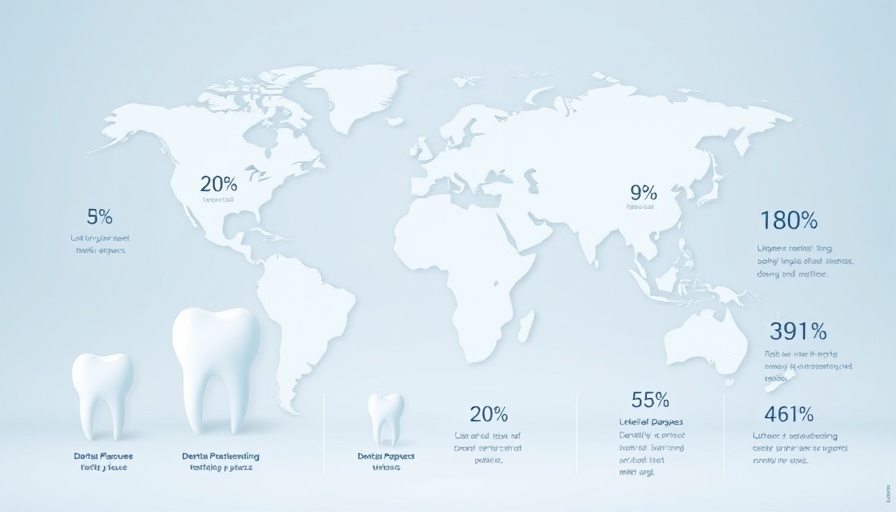
When Will My Baby's First Tooth Appear? A Key Milestone
The anticipation of your baby's first tooth is not just about those adorable little pearly whites but also marks an essential milestone in their development. Most babies experience tooth eruption between four and seven months, but there are exceptions that defy the norm—up to 5% may see their lil' chompers before four months or even after their first birthday! So, what’s the science behind this journey?
Understanding Tooth Development: The Basics
Tooth eruption, while common, isn't uniform. It's a fascinating process influenced by genetics, family history, and individual health. Imagine two babies born on the same day and raised in the same home, yet one may sprout teeth earlier than the other. Pediatric research supports this variability, noting differences even among siblings, reinforcing that individual monitoring trumps comparison. Parents should keep a close eye on their children’s teething patterns and consult a pediatric dentist if concerned.
It’s All in the Timing: The Average Teething Timeline
While we know that most infants will start teething between four and seven months, the actual timeline can vary widely. Generally, central incisors, which are the bottom front teeth, are the first to burst through the gum line. Upon examination, parents may notice swollen gums or your baby’s newfound affinity for gnawing on soft objects. Each child’s tooth development journey is their own, and that’s perfectly okay!
Symptoms You Might See and Relief Strategies
Teething isn’t all sunshine and smiles. You might notice a few common symptoms, including irritability, drooling, and a slight change in feeding habits. So, how do you manage this uncomfortable time? Gentle gum massage with a clean finger, teething rings, or even a cool washcloth can bring some relief. Such strategies not only soothe your baby but also present an excellent opportunity for bonding.
Common Misconceptions About Teething
Let’s clear the air surrounding teething myths! Many believe all infants experience severe pain or discomfort during teething. In reality, while some babies may face challenging moments, others manage the process with minimal fuss. Every baby is different—just like their unique personalities, their approach to teething varies, too.
When to Consult a Pediatric Dentist
A sensible question arises during this rollercoaster—when should you seek professional help? If your baby is showing any unusual symptoms, such as extreme irritability, fever, or diarrhea, it may be time to consult a pediatric dentist. Generally, though, a check-up around the first birthday is a good idea to ensure all is well in the tooth department.
Final Thoughts: The Journey with Your Baby’s Oral Health Begins
As you embark on this journey through teething, remember that each child's experience is unique. Celebrate those first moments and smile through the challenges. Your baby's first tooth isn’t just an adorable milestone; it marks the start of their journey into the world of oral health. So keep those cameras handy and enjoy every gummy grin!🐾
To stay updated on your baby's dental milestones and ensure a healthy start to their oral care, consider consulting your pediatric dentist and share this journey with fellow parents. Make teething a group adventure!
 Add Row
Add Row  Add
Add 




Write A Comment